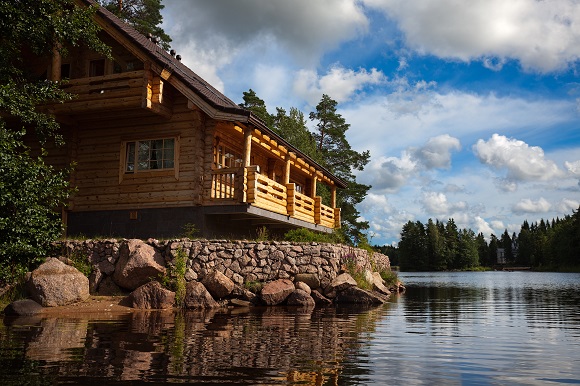Do you dream of lounging with an umbrella drink on a sunny beach, hiking by a pristine lake in the cool mountains, or leisurely strolling through a world class museum? As you begin to make summer vacation plans, much of it planned and reserved via the Internet, here are a few scams to be aware of:
Fake vacation rentals
 Private vacation rentals are growing in popularity and it’s easy to find one these days through portals like Airbnb, HomeAway, and Craigslist. A typical scam starts with attractive pictures of a property in a desired location. The phony landlord, who is really a scam artist, requires an up-front deposit on the rental that is typically sent by wire transfer. When the happy family arrives at the destination, it either doesn’t exist, it’s not at all like it was described, or it is not available for rental. It may even belong to someone else, who lives there and has no knowledge of the transaction.
Private vacation rentals are growing in popularity and it’s easy to find one these days through portals like Airbnb, HomeAway, and Craigslist. A typical scam starts with attractive pictures of a property in a desired location. The phony landlord, who is really a scam artist, requires an up-front deposit on the rental that is typically sent by wire transfer. When the happy family arrives at the destination, it either doesn’t exist, it’s not at all like it was described, or it is not available for rental. It may even belong to someone else, who lives there and has no knowledge of the transaction.
How to protect yourself from vacation rental scams
Don’t be fooled by pretty pictures. Photoshop is amazing and an artist can do all kinds of tricks with it. Ask the property owner to send you additional photos. You can even look it up on Google’s Street View to make sure the property and address actually exists.
Use your credit card instead of cash to make any deposits. Cybercrooks prefer cash, so protect yourself by using your credit card. If you get in a jam, Visa, MasterCard, and American Express can help you recover money lost to fraud.
Fake vacation packages

“You’ve won a dream cruise to Bingo-Bongo Island!” A message like this may come to you via email or you may get a phone call from a hard-selling travel operator. Similar to the fake vacation rental, you are required to pay a deposit for your luxurious resort or cruise. When you arrive, you find out that the package was misrepresented and there are additional fees to be paid to get the “great deal.”
How to protect yourself from vacation package scams
Legitimate offers give you their cancellation and refund policy, along with details of the location of the vacation, the name of the cruise line or resort, the length of time you will be there, and contact information.
Get a confirmation or booking number from the cruise line, hotel, or airlines rather than the travel agency confirmation number. If the cruise line is not on your credit card statement, that is a warning flag.
Free airfare scams
Airfare is a big chunk of your vacation costs, so receiving a discount is welcome. But victims of airfare scams often find that after they pay they do not receive a confirmation or that their credit card has been declined. The only way to get the discount is to pay by wire transfer, which leaves the victim without a ticket and no way to claim a refund.

Social media scams, like this Southwest Airlines scam that has been going around Facebook for a few years, lure prospective travelers to malicious websites with sweepstakes offering free airline tickets. Victims are asked to complete online surveys which reveal personal information, and agree to hidden offers in the fine print of the contest. They are encouraged to share the scam which then gets sent to all their Facebook friends. This type of scam has been known to spread “lifejacking” malware as well. That gives a hacker control of your profile so viral messages are spread to your friend’s accounts.
How to protect yourself from free airfare scams
If it’s too good to be true, it probably is. Don’t open unsolicited emails, take phone calls, or share social posts that offer a once-in-a-lifetime deal without first confirming it’s real.



